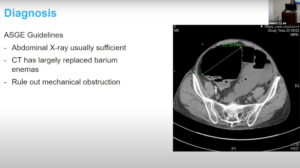NEW YORK (Reuters Health) – Some modulators of 5-hydroxytryptamine (5-HT) appear to be effective in relieving symptoms of irritable bowel syndrome (IBS), the results of a systematic review and meta-analysis indicate.
“5-HT plays an important role in GI motility and sensation, and abnormal levels have been shown in individuals with IBS,” Dr. Alexander C. Ford, from St. James’s University Hospital in Leeds, UK, and co-investigators note in the July issue of the American Journal of Gastroenterology. “Pharmaceutical agents acting on 5-HT receptors have the potential to ameliorate the smooth muscle spasm, abdominal pain, and change in bowel habit that IBS patients experience.”
Noting that earlier analyses of these agents are either outdated or have important limitations, Dr. Ford’s team conducted a literature search for double-blind, randomized, placebo-controlled trials evaluating the effect of 5-HT3 antagonists (such as alosetron) and 5-HT4 agonists (such as tegaserod).
They included trials of all 5-HT moderators currently available, with the goal of gathering data for an updated monograph on management of IBS to be issued by the American College of Gastroenterology.
Of 29 eligible reports, 11 were for 5-HT3 antagonists (n = 7216), including 3 for cilansetron and 8 for alosetron. Another 11 were for the 5-HT4 agonist tegaserod (N = 9242), and 7 were for mixed 5-HT3 antagonists/5-HT4 agonists (4 for cisapride and 3 for renzapride, n = 1043).
Pooled data showed that alosetron, cilansetron, and tegaserod are more effective than placebo for the treatment of IBS, with numbers needed to treat to prevent persistence of one patient’s symptoms of 8, 6, and 10, respectively.
Compared to placebo, the relative risk of persistent IBS symptoms was 0.78 with 5-HT3 antagonists, “with a similar benefit for both alosetron and cilansetron.” Tegaserod was also more effective than placebo, but renzapride and cisapride had no benefit, according to the article.
The authors note that the US FDA has restricted the use of these agents based on potential severe risks, such as ischemic colitis and a small excess number of cardiovascular ischemic events.
Standardized criteria for 5-HT modulators, they conclude, might allow more generalized use, perhaps in patients who have failed first- or second-line therapies, given that “high-quality trials show that they are low-risk, and are moderately effective in a disorder that is difficult to treat.”
Reference:
Am J Gastroenterol 2009;104:1831-1843.




